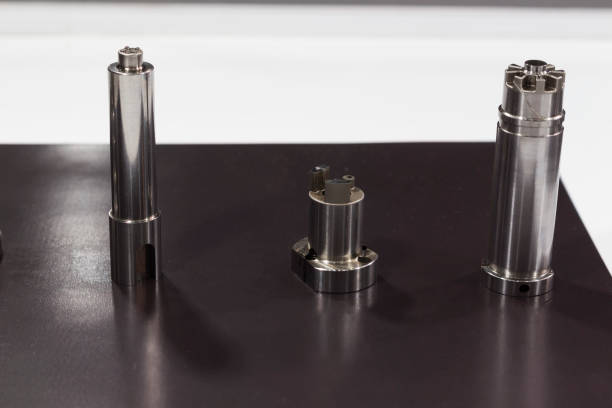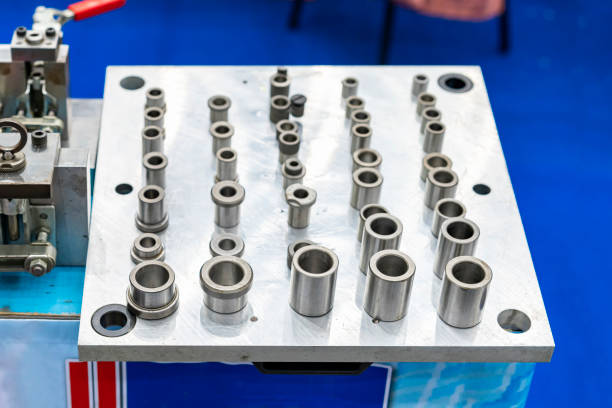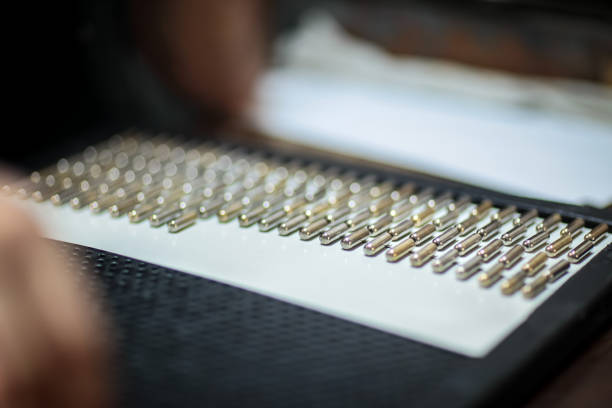What Materials Are Used in Custom Core Pin Manufacturing?
When it comes to custom core pin manufacturing, the material selection is one of the most crucial aspects that influences the final product's performance, durability, and application. Custom core pins are essential components in many industries, especially in molding and casting processes, where precision and strength are paramount. Whether you're a manufacturer in the automotive, plastic molding, or aerospace industries, choosing the right materials for custom core pin manufacturing can make a significant impact on your production efficiency and the quality of your products.
In this article, we will explore the common materials used in custom core pin manufacturing and how selecting the right custom core pin supplier can ensure the best results for your projects.

1. Stainless Steel: The Most Common Material for Core Pins
One of the most widely used materials for custom core pins is stainless steel. Known for its strength, corrosion resistance, and long-lasting durability, stainless steel is an ideal choice for core pins that need to withstand high temperatures and harsh working conditions.
Custom core pin manufacturing often involves stainless steel alloys such as 304, 316, or 420, each offering unique benefits. For instance:
304 Stainless Steel: Offers excellent resistance to oxidation and corrosion, making it ideal for applications in the food, pharmaceutical, and medical industries.
316 Stainless Steel: Offers superior resistance to corrosion, particularly in environments that involve exposure to saltwater or harsh chemicals.
420 Stainless Steel: Known for its hardness and strength, 420 stainless steel is often used when high wear resistance is required.
2. Tool Steel: Ideal for High-Precision Molding
Tool steel is another popular material for custom core pin manufacturing due to its exceptional hardness and wear resistance. This material is particularly useful when producing custom core pins for high-precision molding applications, where dimensional accuracy is critical.
Tool steels like D2, A2, and O1 are commonly used, with each offering different properties:
D2 Tool Steel: Known for its high wear resistance and hardness, making it ideal for core pins subjected to extensive wear.
A2 Tool Steel: Offers good toughness and can be heat-treated to achieve desired hardness, making it suitable for molds that experience thermal cycling.
O1 Tool Steel: Provides a good balance of toughness and wear resistance, often used in general-purpose applications.
3. Alloy Steel: For Added Strength and Durability
In some cases, alloy steel is preferred in custom core pin manufacturing due to its enhanced strength and resistance to wear. Alloy steel combines iron with other elements like nickel, chromium, and molybdenum, which provide increased toughness and durability, making it ideal for core pins that will be used in high-stress environments.
For example, 4140 Alloy Steel is a popular choice due to its excellent strength-to-weight ratio and ability to handle high temperatures without losing its integrity. It's often used in industries such as automotive manufacturing, where core pins are subjected to extreme conditions.

4. Carbon Steel: Cost-Effective and Reliable
While carbon steel is not as corrosion-resistant as stainless steel or alloy steel, it remains a popular and cost-effective material for custom core pin manufacturing. Carbon steel provides excellent strength, toughness, and machinability, making it an attractive option for manufacturers seeking reliable core pins at a lower cost.Carbon steel core pins are typically used in applications where corrosion resistance is not as critical, such as in general industrial applications. Custom core pin suppliers often recommend carbon steel for non-corrosive environments where cost considerations are a priority.
5. Copper and Brass: For Specific Applications
While less common than stainless steel or tool steel, copper and brass are occasionally used in custom core pin manufacturing for specific applications. These materials offer excellent thermal conductivity, making them ideal for molds that need to dissipate heat quickly.Brass core pins are often used in the plastic injection molding industry because they allow for faster cooling times, reducing the overall cycle time of the molding process. Copper core pins are typically used in high-precision applications where heat transfer is critical, such as in the production of electronic components or highly detailed mold designs.

6. Selecting the Right Material for Your Application
Choosing the right material for custom core pin manufacturing depends on several factors, including:
Temperature Resistance: Materials like stainless steel and tool steel are ideal for high-temperature applications.
Corrosion Resistance: If your core pins will be exposed to moisture or chemicals, stainless steel or alloy steel may be more suitable.
Wear Resistance: Tool steel and alloy steel are excellent choices when core pins are subject to significant wear and tear.
Cost Considerations: Carbon steel may be a more affordable option if corrosion resistance and high precision are not as critical.
Working with an experienced custom core pin supplier is crucial to ensure that you select the right material based on your specific needs and application requirements.
7. Why Choose a Reliable Custom Core Pin Supplier?
A trusted custom core pin supplier plays a significant role in the quality and success of your manufacturing process. By partnering with an experienced supplier, you can ensure that your custom core pins are made with the best materials and meet the required specifications.
Look for suppliers who specialize in custom core pin manufacturing, as they will be able to offer valuable expertise and guide you in choosing the right material. Whether you need high-precision, high-durability, or cost-effective core pins, a reliable supplier can help meet your needs and deliver quality results.
The materials used in custom core pin manufacturing significantly impact the performance and durability of the final product. Whether you choose stainless steel, tool steel, alloy steel, or other materials, each offers unique advantages that cater to specific applications. By working with a reputable custom core pin supplier, you can ensure that your core pins meet your exact requirements, ensuring better production efficiency and product quality. Understanding the properties of different materials and selecting the right one for your needs is essential in optimizing your manufacturing processes.
custom mold core pins custom core pin manufacturing custom core pin supplier


